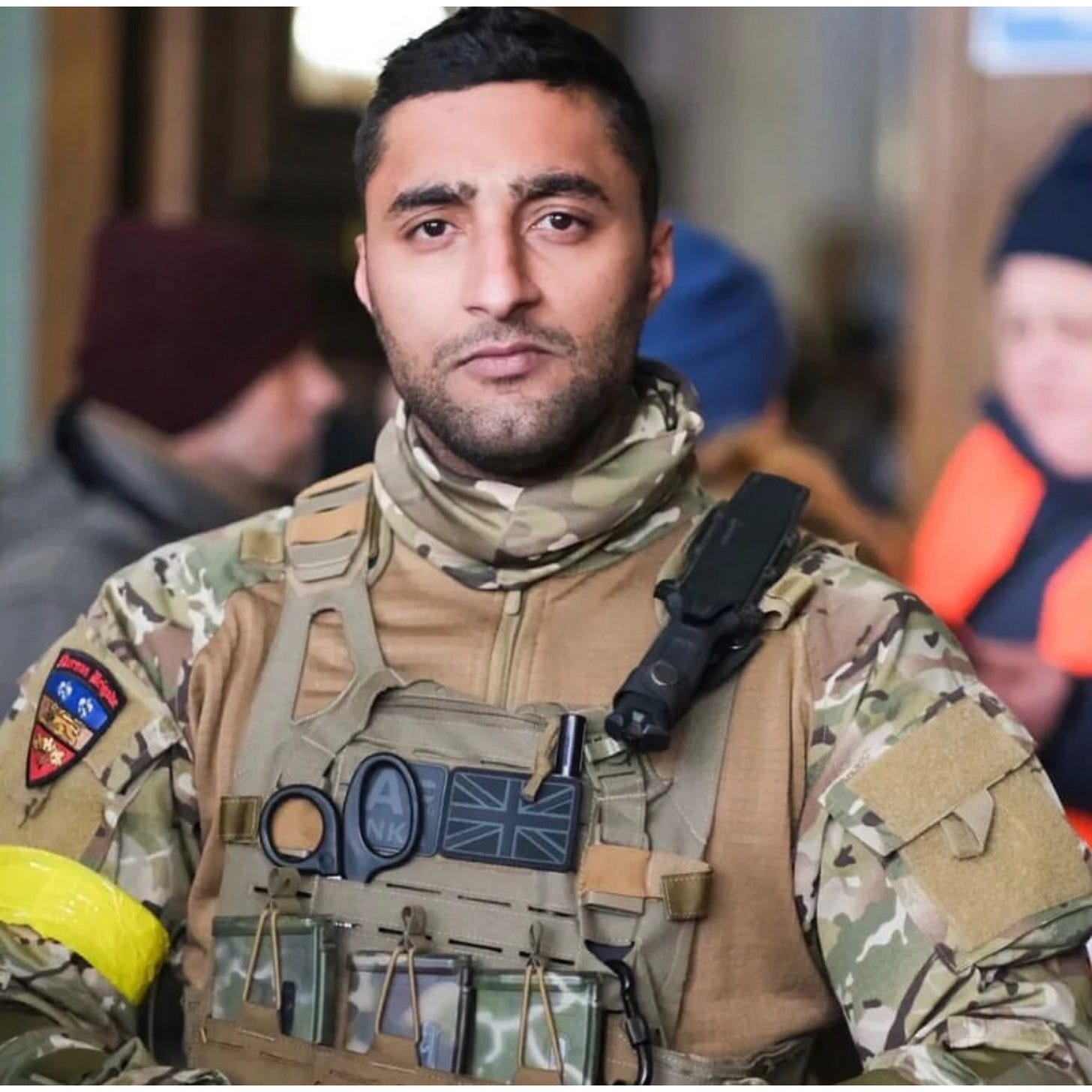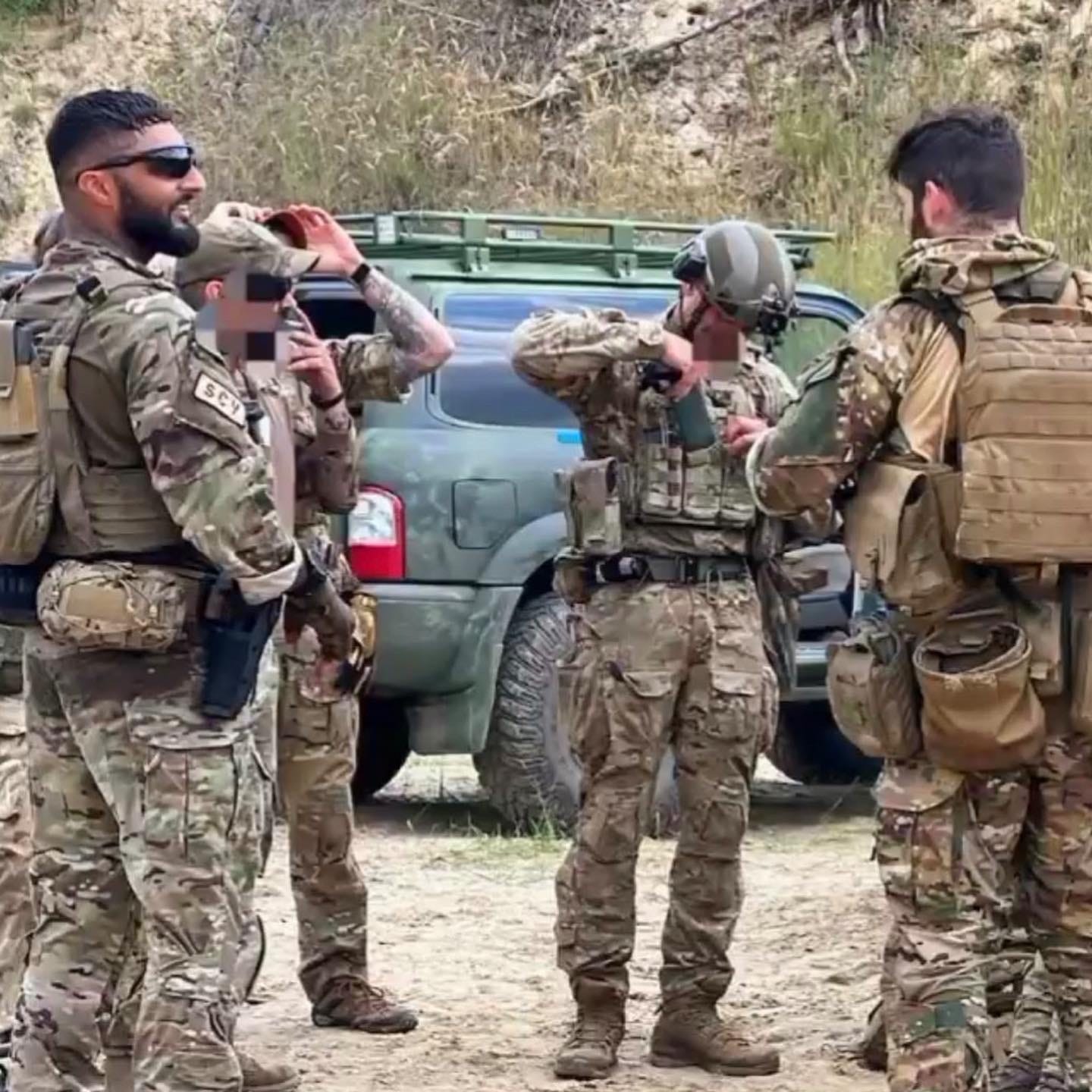Ben Grant recounts his first weeks in Ukraine
republished from August 2022 APA article
Re-publishing this article https://americanpressassociation.com/articles/legionnaire-ben-grant-recounts-his-first-weeks-in-ukraine/ that was published by my former editor Mr. Ron Watson of the American Press Association (editor and friend to Rip Rawlings) since it might disappear again after the Ripley’s Heroes fraud was reported by the New York Times.
“As we enter the sixth month of the war in Ukraine, some of the original volunteer fighters are still in Ukraine without any support from their governments. Instead, they rely on their friends and fellow veterans to help source equipment, vehicles, accommodations, and raise funds for living expenses they need to keep fighting and take care of any family they may have back home. My friend Ben Grant has been here since the beginning of Russia's invasion in February and recounted his first weeks in Ukraine:
"I’m seeing footage of houses being bombed and children screaming–I couldn’t believe this was actually happening, and nothing was being done about it. It was inescapable, this realization that nobody was going to stop it. I couldn't sleep for four days. I’m watching it unfold. I’m in a trance, I didn’t even go to the gym–this is all I’m thinking about. What was I doing before I came to Ukraine? Security contracting in Iraq. I was earning good money, but it was just a job. I wasn't ready to hang up my warfighting boots from my days as a Royal Marines Commando. So I’m in Iraq, watching the news as people arguing about whether Russia will invade Ukraine, and then Russia invades. Now it’s on every channel–all over social media. As a team leader with big clients, I knew I couldn’t continue what I was doing and have my head on other things in Ukraine, so I asked myself: am I just having a moment? Is this feeling going to pass? After those four days, I told myself that I can't keep doing this job, my heart wasn't in it.
I went to my officer and told him I quit. He was shocked, at first, and asked me if something happened on the job? What did he need to do to make me stay? “No, I'm going to Ukraine”. And it was one of those moments where he understood without me having to explain. He paid for my flight. I came back to the UK and got myself sorted, said goodbye to the missus and my kids, and made sure I got my kit together, got a plate carrier–I didn’t want to show up to a warzone with nothing. At that time there were so many people trying to get to Poland, then to Lviv, so everyone was scrambling to get equipment at once. I made the same journey, and when I saw other guys with bags of kit, we made introductions, and then we stuck together.
I came out to Ukraine hoping to find a good group of guys to join–not to lead a group. With so many volunteers, someone needed to step up, but it didn't come together–I think anyone looking at this lot would be hesitant to be responsible for all of them: some real operators, but there were jokers, obviously dangerous people, people too old to fight, but I didn't want to lose the numbers, so I stay with whomever I met. In Lviv, we talked to some Ukrainians, told them we were volunteers, and they crammed thirteen of us into a two-bedroom flat. Then SBU (СБУ: Security Service of Ukraine - the main intelligence and security agency of the government and successor to the Soviet KGB) gets alerted, and they kicked the door down, wearing balaclavas, pointing rifles at us.
I’m thinking, “have we been compromised?” I have no idea if these are Russians, so I was reluctant to face the wall. The other lads listened, but I didn't so I was segregated, while they checked our passports. After an hour or two, an English speaker came out, and said we were not in trouble–”all good”. They left, but now the locals are even more suspicious. We looked on our phones and I saw that Kyiv needs help. Other guys were talking about going to Dnipro or they wanted to wait in Lviv for more Westerners, but I decided to go to Kyiv. I started packing my bags, and then I looked around and everyone in our group started packing their bags for Kyiv, too.
At the Lviv train station, is where I encountered absolute chaos. Nobody with us could speak Ukrainian or Russian, and we struggled to read the train schedule, because there were so many people pushing us. We got the idea to put on our gear instead of carrying it all. So now that we are looking squared away in Western gear–the crowd parted around us. A man came up and asked us where we needed to go. He took us to the first class section–there’s a lounge–it’s still overpacked, but not the single mass of humanity like the other one, and they gave us free train tickets. Here is where news reporters targeted us–we stood out wearing gear–and they begged me for an interview. That was the first time I got any media coverage–they quickly tagged my mother–”British MP’s son”-- it got people’s attention, but I only found out about it later.
Now it’s time to depart, we get on the train. Everyone's scared. You could see it in their faces. We started pitching in, stacking supplies and luggage and helping where we could. We became authority figures, and people looked to us to help direct the flow of people. Next, the train officials handed us trays and we walked through each cabin, handing out food. I still haven’t had any sleep since arriving. We weren't sure if Kyiv was getting shelled. We were hearing reports that people were dying, and we were trying to remain mentally strong by keeping moving and focused on helping.
There was an incident on the train: a man pulled out a knife, started pointed it at the crowd, and then held it to a woman and he started pushing towards the door, where I happened to be in the toilet, and I come out and see Ukrainian security guards, and our guys, facing me, and this man has his back to me. I didn't realize he had a knife, then once I saw it, I grabbed his hand with the knife and pushed it up and knocked it out of the way, and then someone else pepper sprayed both of us. I wrestled him down–there’s pepper spray all over now and they restrained him, and took him away. That hyped us up! We’re awake now!
The train pulls into Kyiv and it's a ghost town. We see smoke all over the place, buildings are hit, sirens going, it’s freezing and snowing on and off–negative 10 degrees. I said we should remain under the train station for shelter. I saw someone standing outside the underground, the metro, and asked if there was somewhere we could go? “We're westerners to come fight.” They took us to a shelter and welcomed us in, and we saw medical people–Ukrainian volunteers–setting up makeshift beds. The Ukrainians stood up and started clapping. I'm thinking we haven't done anything yet. But it was emotional–the act of coming into a foreign country and receiving that type of welcome. They offered us food and started taking care of us. Women as young as 22 or 23 year were running the shelter. One woman named Victoria was studying to be a doctor, and giving injections to patients. It was amazing to see and awful at the same time, they were so young, yet rising to the challenge and leading in the middle of a warzone in their city.
I was approached by someone from the Azov Battalion who wanted to recruit us. We were unsure if this was the right way to join up, so we took his number, and kept asking around for the International Legion, since that is what we came to join. We managed to get in contact and the Legion took us to the airport. They tell us it hasn’t been attacked yet, but they hear it's going to be, and tell us they need our help to defend their trenches. They gave us accomodation in an office building, and we brought sleeping bags and pads. There we spent 24 hours each in a trench doing rotations. Although to be honest seeing the trenches in the snow before I came here, when I'm sitting in the desert in Iraq, was something that put me off, but now it’s my reality. Now after two weeks, we see the characters come out in our group of volunteers. The people who couldn't hack it–the ones who lied about their prior service–some people were crying, and now it was sad. These people came to help, and it didn't happen the way they imagined it would in their heads– it was a mess.I heard there was more happening in the northeast of the city, and I volunteered to go on missions to get me out of the trench. On one of these missions with a British sniper, he accidentally got his finger cut off, and one of the Urkainians died. I kept my head down and kept pushing to do more. Some of the Ukrainians we were fighting with were high up in the military and noticed me. They said that there are plenty of young Ukrainians who can sit in a trench, come out with us and they took some of us out on missions everyday. It was constant, the Ukrainians were relentless. Some volunteers left after having gone through those battles. Others went to other locations, instead. And I was left on my own.
The Ukrainian commander asked me: ”What do you want to do? You can embed with us. Or you can create your own team.” These were good men– they had everything we needed, so we started growing a team with them. We relied on word of mouth, there were volunteers coming and going to different units. Some of the initial volunteers headed home, but if one of their buddies came out, they passed them my name and said hey there's a good guy. And the team started to come together. Next we move to Kharkiv. Now we have to square away the vehicles, somewhere to stay, and ammunition. They had a whole network of support behind them, so some things like ammunition and a place to stay we go through them, but without having that larger logistics network or support from our own people and governments, we were forced to rely on ourselves and make do with what we had."


